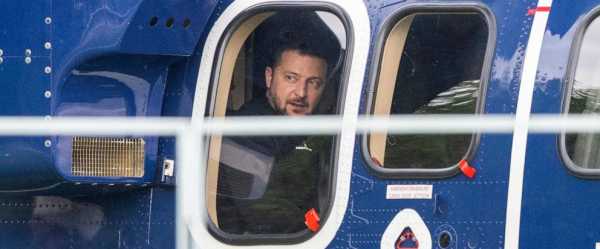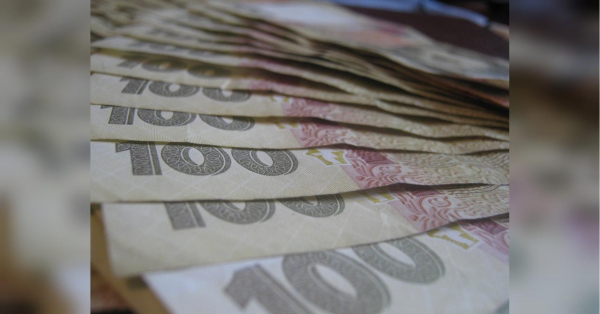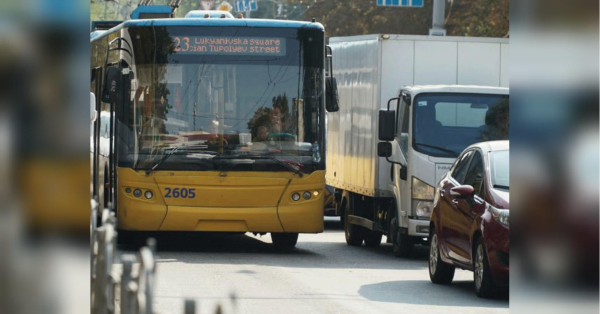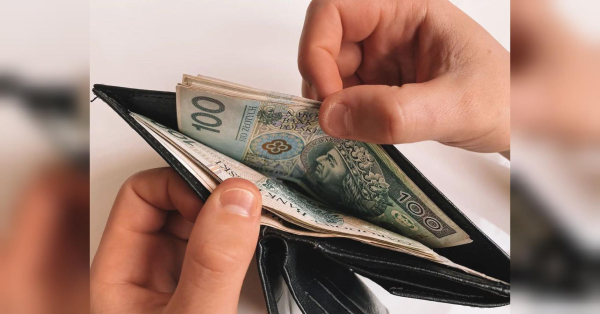
LONDON — Volodymyr Zelenskyy set off across Europe with a long shopping list. Ukraine’s president will head home with much of what he wanted — though not the Western fighter jets he seeks to defend against Russian air attacks.
European leaders promised Zelenskyy an arsenal of missiles, tanks and drones during a whirlwind three-day visit to Italy, the Vatican, Germany, France and the U.K. that sought to replenish Ukraine’s depleted weapons supplies ahead of a long-anticipated spring offensive aimed at turning the tide of the war.
The trip was also about shoring up European political and military support for the longer term, to ensure Ukraine can hold any ground it takes back and press for a favorable peace.
“They’ve got to show … they’re in this conflict for the long term and that they’re able to keep sustaining this effort,” said Justin Crump, a former British tank commander who heads security consultancy Sibylline. “It’s not going to be one shot and done.”
Zelenskyy’s energetic international diplomacy over 15 months of war has persuaded Ukraine’s Western allies to send ever more powerful weapons, from German Leopard tanks to U.S. Patriot missile systems and Storm Shadow cruise missiles from the U.K.
Pressing his case to European leaders in person shows Zelenskyy’s growing confidence about traveling abroad. It’s also an attempt to get his “ducks in a row” as Ukraine prepares a push to reclaim territory seized by Russia, said Patrick Bury, senior lecturer in security at the University of Bath.
Bury said that if Ukraine launches an offensive “and it doesn’t go well, there might be a drop off in support and more pressure to negotiate. I think he’s just trying to bind in for as long as he possibly can as much support as he can from the West.”
On Monday, the U.K. pledged hundreds more air defense missiles, as well as attack drones with a range of more than 200 kilometers (120 miles).
France, where Ukraine’s leader met President Emmanuel Macron on Sunday, said it would supply Ukraine with dozens of light tanks and armored vehicles, along with unspecified air defense systems.
Zelenskyy also visited Germany for talks with Chancellor Olaf Scholz, whose initial reluctance to provide Ukraine with lethal weapons was a source of frustration in Kyiv. Now, Germany has become one of the biggest arms suppliers to Ukraine, including battle tanks and the sophisticated IRIS-T SLM air-defense system.
During Zelenskyy’s visit Germany announced another 2.7 billion euros ($3 billion) worth of equipment, including tanks, anti-aircraft systems and ammunition.
But Zelensky’s aim of forming an international “fighter jet coalition” to supply Ukraine with planes has run up against NATO concern about escalating the alliance’s role in the war. Ukraine wants U.S.-made F-16s to supplement its Soviet-era jets, but Washington has resisted calls to send them.
“We want to create a jet coalition and I am very positive about it,” Zelenskyy said Monday after meeting British Prime Minister Rishi Sunak. But, he added: “We have to work a little bit more on it.”
Sunak said Britain wants to help Ukraine acquire jets, but “it’s not a straightforward thing.”
The U.K. does not have any F-16s, but says it will give Ukrainian pilots basic training on Western-standard jets starting this summer.
Germany’s Scholz was evasive when asked about planes, referring instead to the anti-aircraft system it has provided to Kyiv.
“That’s what we as Germany are now concentrating on,” he said.
The flurry of announcements from Europe’s capitals is part diplomatic theater. Ukraine gets a steady flow of equipment from the West, and some of the weapons announced this week may already have been on the way. Zelenskyy’s trip was about securing supplies for the long term, as well as the imminent offensive.
“They should be able to carry out the offensive with what they already have, but that’s not enough to sustain it over the long term,” said retired French Vice Adm. Michel Olhagaray, a former head of France’s center for higher military studies. “And they’ll need the long term to make the Russians crack.”
Zelenskyy began his European tour Saturday in Rome, where he received a hearty commitment from Italian Premier Giorgia Meloni — and a more nuanced and less welcome message from Pope Francis.
Calling Zelenskyy her friend and emphasizing their personal rapport, Meloni promised to provide Ukraine with whatever it needs to win the war and said any compromise to accept an “unjust peace” was unacceptable for Ukraine and Italy, and dangerous for the rest of Europe.
“We cannot call ‘peace’ something that could resemble an invasion,” she told reporters, as Zelenskyy nodded along in agreement.
Zelenskyy also visited the Vatican to meet Pope Francis, who stressed the need for “gestures of humanity” toward the most vulnerable and innocent victims of the conflict.
While Francis has frequently prayed for the “martyred” Ukrainian people, he has also lamented the Russian mothers who have lost their sons. The equivalence, and Francis’ reluctance to outright condemn Russia, is part of the Vatican’s tradition of neutrality in conflicts.
Zelenskyy made clear he didn’t appreciate Francis’ emphasis on both Russian and Ukrainian victims of the war, tweeting: “there can be no equality between the victim and the aggressor.”
It was a reminder that Ukraine faces a political as well as a military battle. In Africa and Asia, especially, many are reluctant to take sides in what is seen as a regional European conflict.
François Heisbourg, a French analyst on defense and security questions at the International Institute for Strategic Studies, said Zelenskyy’s European trip was part “weapons shopping tour, that’s clear enough, and it seems to be working very well.”
“But the other aspect, of course, is what you would call shaping the political battlefield,” he said. “The politics are no less important for Zelenskyy than the purely military stuff.”
___
Associated Press writers John Leicester in Paris, Kirsten Grieshaber in Berlin, Nicole Winfield in Rome and Danica Kirka in London contributed to this report.
Sourse: abcnews.go.com






